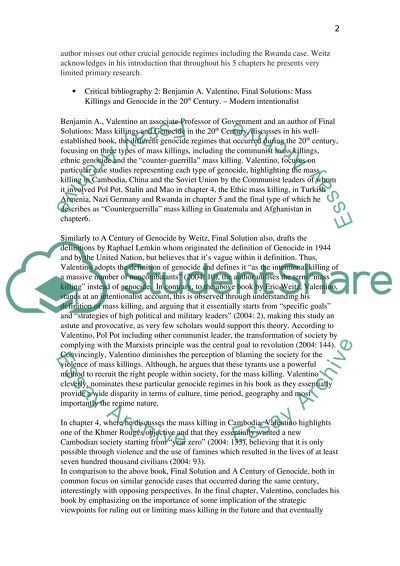Cite this document
(“Genocide and crimes against humanity Essay Example | Topics and Well Written Essays - 1500 words”, n.d.)
Retrieved from https://studentshare.org/history/1498501-genocide-and-crimes-against-humanity
Retrieved from https://studentshare.org/history/1498501-genocide-and-crimes-against-humanity
(Genocide and Crimes Against Humanity Essay Example | Topics and Well Written Essays - 1500 Words)
https://studentshare.org/history/1498501-genocide-and-crimes-against-humanity.
https://studentshare.org/history/1498501-genocide-and-crimes-against-humanity.
“Genocide and Crimes Against Humanity Essay Example | Topics and Well Written Essays - 1500 Words”, n.d. https://studentshare.org/history/1498501-genocide-and-crimes-against-humanity.


